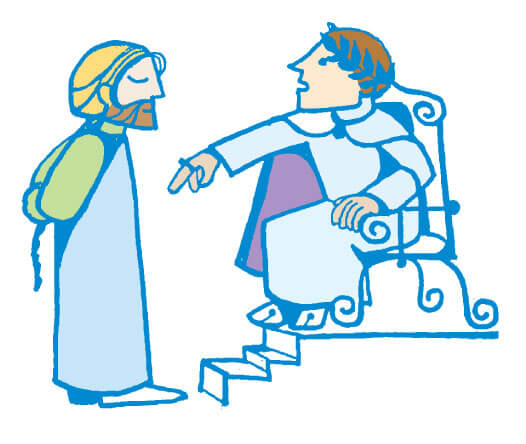
Sunday Readings: Daniel 7.13-14; Revelation 1.5-8; John 18.33-37
Pilate said to Jesus, “So, are you a king?” Jesus answered, “It is you who say I am a king. The reason I was born, the reason why I came into the world, is to testify to the truth. Anyone committed to the truth hears my voice.” – John 18.37
The Feast of Christ the King culminates the liturgical year and holds up in Jesus an alternative vision of power for leaders in our world. Jesus demonstrates his truth in feeding the hungry, giving sight to the blind, raising Lazarus. Jesus reveals God’s power is love.
In Sunday’s gospel Jesus faces the rule of Rome in Pontius Pilate, its local governor. Jesus intrigues Pilate, who in the end follows the crowd and orders him executed. Jesus has come from God’s world and insists he doing what he is born to do — to testify to the truth, to bring God’s love near.
Catholic social teaching identifies three steps for getting at the truth — see, judge, act. The first step challenges us to notice and explore conflicts, learn what feeds and what eases tensions we face in our lives, in our world, in our neighborhood. The second step calls us to consider our judgments in the light of Jesus’ teachings in scripture and the Church’s teachings about social justice. The third step is to act, to make a difference.
To follow Jesus, we must testify to the truth within us, in the gospels, and in our tradition that recognizes the sacredness of every person. This requires making a habit of actively discerning and judging how we can contribute to the common good. As Christians we can’t help but see Jesus in the least and can’t dodge the work of including the least in our care — in our families, our social circles, and global neighborhood. Christ the king is Christ our kin, one of us who values and loves all of us.
What local issues do you see needing action? What do you observe? What in your judgment needs to change?